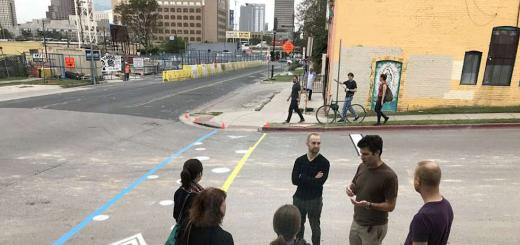On February 13, 2017, Andrey Nikitin, head of the Agency for Strategic Initiatives, assumed the position of Acting Governor of the Novgorod Region. The Moscow appointee was positioned as one of the president's favorites, which allowed him - albeit with an extremely low turnout - to win in the first round of the gubernatorial election. "FederalPress" recalls what the team of "Varangian" Nikitin managed and failed to do in the region in the first year of work.
9 years old Mitina
Nikitin's predecessor, Sergei Mitin, served as governor for a long 9.5 years, before the elections to the Novgorod Regional Duma in 2016, he seemed to be an unsinkable politician. A protracted conflict between the regional authorities and the mayor's office of Veliky Novgorod, criminal cases against his deputies Andrei Nechaev and Arnold Shalmuev, corruption scandals and irritation of citizens from the arrogant style of communication of the head of the region did not convince Moscow of the need to replace him. Moreover, six months after the resignation, the ex-governor was returned to the region.
In the fall of 2016, Mitin topped the list of candidates for the regional Duma from United Russia. The only critics of the governor at that time were the Yabloko party and independent deputy Leonid Doroshev. The internal political bloc made every effort not to let the opposition into the regional parliament, and achieved its goal, the party did not have enough 0.17% to enter the Duma.
After the elections, the resignation of the governor began to be talked about much more often, but there were few real candidates for a replacement, and they represented groups of influence within the regional elite. A week before Mitin's resignation, Novgorodians still did not know anything about the future governor, but unofficial information about the change of power in the region got into the media. Of course, after 9 years of the last reign, Nikitin was doomed to comparisons with the former head.
The first steps
Nikitin was presented in the region the day after the official appointment. Mitin delivered a report to the audience, which was followed by a stormy and prolonged applause.
Nikitin did not work in public politics for a single day before his appointment. In Veliky Novgorod, he made an impression of an intelligent and reasonable person, in many respects the opposite of Mitin. But a successful start did not mean a new independent policy of the governor. He reluctantly replaced the predecessor's team and at first retained key positions in the government for the old managers.
The joy of society gradually turned into bewilderment: promises to work with everyone, regardless of political views, were replaced by visits from members of the Russian government. In the spring Dmitry Medvedev and Vladimir Putin visited Veliky Novgorod, Dmitry Rogozin visited Staraya Russa.
In parallel, the ASI team helped the former boss in setting the agenda. The trainers launched a series of strategic sessions, where invited deputies, officials, representatives of management companies and active citizens developed an image of the future. These meetings were not announced publicly, so they were mostly attended by invitation or “for the company”. The style of the ASI seemed unfamiliar and annoying to those around him, critics repeatedly reminded the acting governor that he was not in the capital. Here Nikitin partially repeats the first steps of the governors, who are usually called "young technocrats" and part of the process of renewal of the Russian political elite.
Communication with deputies
Nikitin appears at sessions, but avoids visits to meetings in the regional Duma. Gradually, the functions of actual management are transferred to Sergei Sorokin, appointed in March, who, before moving, worked as his deputy in the ASI.
“Governor Nikitin, from the moment of his appointment as interim, has adhered to the tactics of being closed from the local community, preferring to use intermediaries in the form of his deputies for communication purposes. Basically - the first vice-governor Sergei Sorokin, who is called upon to determine who is his own, who is a stranger, on the basis of subjective ideas of "like it or not," says Mikhail Shimanovsky, a political strategist from Novgorod.
The only possible place for a dialogue between the acting governor and the deputies was the hall of the Novgorod Philharmonic. During the meeting of the presidential envoy with citizens, Andrei Nikitin laid siege to the deputies, saying that they should ask questions at meetings of the regional duma. In response, a group of deputies, including leaders of the United Russia and LDPR factions, left the hall.
“The usual way of communication between the regional government and deputies no longer works. In the last convocation, Sergei Mitin, perhaps, had the only headache - Doroshev. There were much more troublemakers in the new convocation, and I think we will have to negotiate with each new team, ”wrote after the meeting. former leader regional media holding Agency of Information Communications Dmitry Vertkov.
First Deputy Sergei Sorokin, apparently, remains "in charge" while the governor is absent, political observer Alexander Vlasov believes. “Andrey Nikitin has not yet got rid of the habit of traveling on business trips, acquired during the leadership of the ASI. Recently I went to Seoul. What for? As I see it, Sorokin will continue to “rule” the region, while Nikitin will spend a lot of time in Moscow,” Vlasov said.
Ending the conflict with the mayor
Unlike the regional deputies, the mayor of Veliky Novgorod Yuri Bobryshev quickly found mutual language with the new head of the region. During his conflict with Mitin, which has been dragging on since 2015, the mayor regularly spoke about the need to preserve most of the personal income tax for the city (now 15% remains in the city treasury - the minimum established by the Budget Code) and the return of direct mayoral elections.
Bobryshev was especially harsh about the elections when Sergei Mitin, in an attempt to establish direct control over the city, tried to remove Yuri Bobryshev from the mayor's office through deputies controlled by him. The Duma of Veliky Novgorod impeached the mayor in May 2015, but in December, Yuri Bobryshev returned to the chair of the mayor by court order.
In 2017, with the arrival of Nikitin, Bobryshev changed his rhetoric and preferred to compromise. The region proposed to leave municipalities 50 percent of taxes under the simplified taxation system in 2018 and bring this figure to 100 percent in a few years. The referendum on the return of direct elections of heads of municipalities was eventually proposed by the Novgorod "Yabloko", but the deputies rejected it. Despite the agreements reached, Veliky Novgorod has gained little so far. The funds raised under the simplified tax system will not be able to close budget gaps, and there are not enough funds even to pay contractors for cleaning the city.
Governor's election
When Nikitin came to the region, the Novgorod opposition hoped for transparent gubernatorial elections. The last campaign, in which Mitin was elected in 2012, followed an uncompetitive scenario. Many attributed this to the character of the previous governor, but hopes for an open campaign in 2017 were quickly abandoned.
Nikolai Zakharov, who participated in the last campaign, from the Patriots of Russia, a party that does not conduct any activity in the region, appeared among the interim rivals. He, like the candidates from parliamentary parties, easily collected the required 10% of the signatures of municipal deputies in his support.
The only opposition candidate, Anna Cherepanova, ran into difficulties and was eventually unable to take part in the elections. “Officers of the government of the Novgorod region, administrations of municipal districts and rural settlements centrally collected signatures for the United Russia candidate Nikitin and candidates agreed with him. The candidate from Yabloko did not have the opportunity to officially and directly address the deputies of the settlements, to inform them of her nomination, ”the Voice movement for the protection of voters’ rights says in a statement.
Andrey Nikitin himself avoided statements and entering into controversy, in the public field during the campaign he behaved not as a candidate, but as an appointed manager, talking about road repairs, the Quantorium children's technopark and new jobs. As a result, the nominee of "United Russia" scored 68% with a turnout of 28%.
After the election, Andrei Nikitin formed a new team. Managers appointed under Mitin faded into the background. The first vice-governor Sergei Sorokin received even more real powers, new "Varangians" arrived from other regions. The local team in the government is represented by another first deputy, Veronika Minina, who oversees relations with Moscow.
An unpleasant surprise was the appointment of ex-governor Mitin as a senator from executive power Novgorod region. There are opinions that this decision was imposed on Nikitin from the federal center, or he independently decided to maintain normal relations with Mitin and his supporters in the region. One way or another, the former "political heavyweight", by the way, also a visitor, retained some influence in the region, and Nikitin himself got rid of the image of "Nemitin", as he was called on the Internet immediately after his appointment.
Mitin held weekly briefings, while Andrei Nikitin eschewed media attention and preferred to talk to state media. Media representatives did not get into the new composition of the regional Public Chamber, nor in the public council under the government. An illustrative example is the journalist Gennady Ryavkin, who worked as the editor-in-chief of the state newspaper Novgorodskiye Vedomosti. After his dismissal, he turned into a columnist and a consistent critic of the new governor in the private media.
“Unfortunately, this year did not pass without conflicts: the board of the Novgorod Union of Journalists received complaints about the “black lists” that allegedly remained with the new government, that is, the selective approach to journalists (we work with these, but not with these; we call there, but not everyone here) is partly preserved, - says Olga Larina, chairman of the board of the regional Union. “An undoubted advantage for the Union of Journalists was the political solution to the issue of our House of Journalists.” The new governor publicly promised to return the building, but it was not so easy to legally fulfill the promise of the head of the region.
After the elections, the head of the region finally held a big press conference, to which all the media were invited without exception. At it, he noted the important role of "United Russia" in the management of the region, but also dissociated himself from it. “We are working closely with United Russia. But I’m not going to enter anywhere, ”Nikitin said then.
After the election, Andrei Nikitin continued the tactics of dosed communication with the media. Even the regional Internet publication 53 Novosti announced the reform in the government according to an anonymous source. In 2018, the governor attempted to create a new image of a manager open to society, which was noted on the local telegram channel: “The attentive ones could not help but notice how Nikitin’s positioning has changed since the beginning of the year. Just one swift raid on the regional maternity hospital on Friday evening about several high-profile cases of infant mortality is worth something. Moreover, the result of the trip was not a public scolding of the head physician, but a completely thoughtful intelligent conversation. Which is also very different from the times of Sergei Gerasimovich (Mitin) - he would have burned with napalm, ”the author notes.
Nikitin can stay
They say that in this way Nikitin stopped talking with the locals in the incomprehensible language of “foresights” and “strategic sessions” and decided to gain a foothold in the region as “his” person. Political experts, in turn, attribute these changes to their conversation with Moscow. “No leaks from an anonymous telegram channel about changing the governor’s image do not change this practice, but, like the recent formal appearance of the governor before the deputies of the regional Duma, are a reaction to the likely dissatisfaction of the federal center with the governor’s excessive closeness,” Mikhail Shimanovsky believes.
Political observer Alexander Vlasov is also sure that rumors about the governor are being spread by his entourage in order to convince citizens that Nikitin is “his own” person and has the opportunity to use Moscow’s favor towards him for the benefit of the Novgorod region. He does not believe in Nikitin’s imminent departure for a promotion and considers this part of his team’s PR campaign, evaluating its results negatively: “The Pskovites also thought that Andrei Turchak would leave in two or three years for a promotion. In my opinion, Nikitin will not be invited to Moscow, and he will have to prove his professional suitability here. This reminds me of the times of the governor Mikhail Prusak before last, when there was information in the media that he would become deputy head of government or take another high position.”
For the image of Nikitin in the public space, the first vice-governor Sergey Sorokin and the head of the information policy department of the governor's administration, Yulia Slutskaya, who switched to this job from the post of press secretary of the ASI in the Northwestern Federal District, are responsible. According to Vlasov, they are responsible for the vague image of the region's first person, together with the media holding Agency for Information Communications, which belongs to the region, as well as the governor himself. The main achievement of the new head at a press conference on the occasion of the anniversary of his appointment was the large-scale repair of roads in the region.
February marked the one year anniversary of Andrey Nikitin's appointment as Acting Governor. During this time, he was elected, reformatted the team and seemed to find a common language with the local elites. However, external management, especially in terms of internal and personnel policy, is handled by his first deputy, Sergei Sorokin. And it is still unclear whether Nikitin's "business trip" in the Novgorod region will be long, or whether this is just a step necessary to continue his career at the federal level.
Andrey Nikitin, Innovative Biker Governor February 13th, 2017
Wherever Nikitin was predicted - young, successful, with all his appearance demonstrating energy and efficiency.
In particular, he was stubbornly asked to take the place of Ulyukaev, to the ministers economic development RF.
The GDP decided that it was too early. Let 37-year-old Andrei first show himself "on the ground."
Nikitin is a Muscovite, but he lived and received school education in Miass Chelyabinsk region.
Graduated State University management specialty "State and municipal management". He defended his thesis on the topic "Strategy of organizational changes as a tool for effective management (theoretical and methodological aspect)".
Since university times in business: Deputy Director of Block Black LLC, Deputy General Director for Development of Teremok - Russian Bliny LLC, Development Director of Neftegazinvest Investment Company CJSC, General Director of Steklonit Trading House LLC, General Director of Integrated Insulation Systems LLC ", General Director of Uralneftegazstroy LLC, again General Director of LLC "Trading House "Steklonit", General Director of LLC "Steklonit Management", General Director of JSC "Tverstekloplastik".
All this, I note, for 9 years. Copiers, pancakes, oil/gas, fiberglass, composites and geosynthetics.
In 2009-11, Nikitin headed the Ruscomposite holding.
Until November 2009, the founders of Ruscomposite were Bashkir businessman Sergei Fakhretdinov, who had 80 percent of the management company, and Nikitin, who had a 20 percent share. Then the company was sold to the Cypriot company Steklonit Holding Limited.. In 2011, it was reported in the press about Ruscomposite Management Company that it "combines two production sites" - Ufa-based Steklonit OJSC and Tverstekloplastik OJSC. It was noted that it also includes the Moscow trading house LLC "Steklonit Management", a subsidiary of LLP "Steklonit Management" (Kazakhstan) and a representative office of the company in Ukraine. It was also noted that Roscomposite has "established good relationship with Gazprom", "Transneft", "Russneft", "Rosneft", "Lukoil", "TNK-BP", "Ritek" and "Russian Railways". The media also reported on the profitability of the companies in which Nikitin worked. So, in 2009, the profit of "Ruscomposite" amounted to 1.4 million rubles, in 2010 the profit of "Steklonit" was estimated at 82.8 million rubles, "Tverstekloplastika" in the same year - 20.3 million rubles.
In March 2011, Nikitin signed a cooperation agreement between Ruskoposit and the Federal Agency for Youth Affairs (Rosmolodezh), headed by Vasily Yakemenko. According to this document, the company was supposed to provide support to "young innovators" - participants in the "Zvorykinsky project" of Rosmolodezh. In addition, Nikitin's company acted as a partner of the Seliger-2011 youth forum, "constructing mobile road surfaces on its territory" from "innovative materials" (by laying slabs that are used to drive wheeled and tracked vehicles in conditions of "rough and swampy terrain") .
In May 2011, GDP announced the creation of an incubator for innovative business projects, the Agency for Strategic Initiatives (ASI). In defiance, as opposed to Skolkovo, the favorite brainchild of the unlucky Medved.
Putin himself headed the supervisory board. Nikitin, after passing an open competition and approval by the President, became the general director.
On February 13, 2017, Putin, as expected, appointed Nikitin as Acting Governor of the Novgorod Region.
Andrei Sergeevich Nikitin is exclusively Putin's creature, equidistant from the oligarchic, power and other groups of influence and does not have obvious conflicts with these groups of influence.
Novgorod region only as a training ground and (depending on the results) a launch pad.
There is relatively little information about Nikitin's personal life. It is known that he is a biker (Bad Boyz Moscow club), his wife is a surgeon, his parents are pensioners.
Andrei Sergeevich Nikitin is the current governor of the Novgorod region, who took office in 2017, after early elections. But his knowledge and interests are not limited to his political career. Nikitin is a man with an excellent education and a bold approach to life. He managed to write a dissertation and become the author of several serious scientific articles.
Childhood and youth
Published biographies of Andrei Nikitin often contain an unintentional factual error. Officially, he is considered to be a native Muscovite.
In fact, on November 26, 1979, little Andrey was born in Vladimir region, in the city of Kirzhach. There, his maternal grandfather served in missile defense for many years. Moscow is recorded as the place of birth due to the registration of parents in the dormitory of the State University of Management, which at that time was called the Institute of Management. .
At the age of 2, the boy moved to Miass with his parents. His father got a job at a car dealership, and his mother, a business executive by education, held a position in the municipality.

By the end of school, the parents set a condition for their son: if he wants financial support during his studies, he must enter good university. The list of possible places also included MGIMO, the main diplomatic forge of the country. Andrei quickly abandoned the idea of going there - the contingent of students seemed too pompous. As a result, Nikitin chose the GUU, which was memorable to his parents, as a place of study.
In the process of studying, the young man underwent internships in the State Duma and the plenipotentiary representation of the Southern federal district. In 2001, the bachelor's degree in state and municipal administration was received, and the question arose of where to go next.
Career and politics
Nikitin did not limit himself to five courses at the university, and graduate school became the next stage in his life. In 2006 Andrey Sergeevich became a doctor economic sciences, having defended his dissertation on the difficult topic “Strategy of organizational changes as a tool for effective management (theoretical and methodological aspect).

Then a new step awaited - 2008 was marked by the receipt of a master's degree in business administration. He studied at the Stockholm School of Economics. In addition, Andrey Sergeevich received the post of associate professor at the State University of Management, at the Department of Management Theory and Organization.
The politician began to work during his studies, but at first the field of activity was business. The first job in this field was the post of Deputy Director of Block Black LLC. After that, Nikitin worked as deputy director for the development of the popular Teremok cafe chain. The network known today in Russia then consisted of four wagons, and Andrei himself was engaged in negotiations with local councils.

For the next 9 years, the man worked at Ruscomposite - under this name enterprises engaged in fiberglass, geosynthetic materials and composites are united. By 2009, Nikitin's professionalism led to his appointment as CEO.
In 2011, the non-profit organization "ASI" appeared, the purpose of which was to support new medium-sized businesses. Andrey Sergeevich by that time had managed to prove himself in coordinating the project “The quality of roads in the Russian Federation”. As a result, it was Nikitin who was selected from the applicants for the leadership of the organization.

As general director, Andrei Sergeevich was remembered primarily for his rejection of bureaucracy and his consistent fight against it. The result has been a reduction in the time required to register businesses and obtain building permits. The number of documents required for submission has also been reduced.
Nikitin's efforts have been repeatedly noted. He was commended by the Ministry of Industry and Trade and the President Russian Federation. Hard work led to Andrei Sergeevich being awarded the medal "For Valiant Labor".

2017 has been a year of big changes. The man, who for 6 years became the personification of ASI, was appointed Acting Governor of the Novgorod Region. Doubts about Nikitin's competence as a politician dissipated by the time of the early elections. Having worked in office for less than a year, Andrey Sergeevich won, gaining 67.99% of the vote.
Personal life
Due to the same surname, patronymic and similar political positions, Andrei Nikitin can be considered a brother - also a governor, but Nizhny Novgorod region. This is not true. Sergei Andreevich has no brothers, his family consists of parents, wife and daughter.

The governor's wife is Maya Viktorovna Nikitina, nee Sannikova. They met back in school days. Then the girl entered the Chelyabinsk medical school and learned to be a doctor, and Andrei himself went to Moscow. However, after studying, friendly relations nevertheless grew into love.
Maya Viktorovna - a specialist in the field of oncological gynecology, candidate of medical sciences. Prior to Nikitin's appointment as governor, the woman worked at the Center for Obstetrics and Gynecology. Kulakov. By this time, the governor's wife was already in a position, so she left the job without hesitation. On February 25, 2017, Maya Nikitina gave birth to a daughter, Arina.

Personal life politics is in plain sight, but this does not prevent Andrei Sergeyevich from remaining himself. Since childhood, he dreamed of a motorcycle and in 2011 he managed to fulfill this dream. So now a man often rides a "two-wheeled horse" and does not hide it at all. A photo of the governor on a motorcycle can be found in his account in "Instagram".
In an impromptu interview with young people at a rock picnic for the Vremya Est magazine, the politician admitted that he is not indifferent to rock music, and his favorite group is.
Andrey Nikitin now
Andrey Sergeevich continues to work as the governor of the Novgorod region. The man is a supporter of United Russia and responsibly approaches political issues. On September 9, 2018, he, along with other citizens, attended the elections of deputies of the State Duma.

Nikitin declared income, even holding the position of director of the ASI, although he had the right not to do so. Officially, in 2016, the man earned 44.7 million rubles.
After the start political career the salary has become less, but the governor does not complain - he wants to be useful at his job.
Conversation between Acting Governor of the Novgorod Region Andrey Nikitin and publicist and blogger Nikolai Podosokorsky.
Andrey Nikitin - Acting Governor of the Novgorod Region since February 2017. Born in 1979 in Moscow. Candidate of Economic Sciences. In 2011-2017 - Director General of the Agency for Strategic Initiatives to promote new projects. The conversation with Andrei Nikitin took place on 28 July.
— Some political scientists criticize you for being too close to local opinion leaders. I decided to check it out for myself, and you agreed to the conversation. With whom are you ready to communicate and cooperate today as the head of the region? How important is the feedback of local residents regarding your work to you? Do you listen to criticism?
— I do not believe in a model in which there is one person who knows everything for everyone and will show everything to everyone. Therefore, I am ready to communicate and work with absolutely everyone. And this must be done. In the Novgorod region, something can change only when a sufficient number of people are formed here who will live and build their policies a little further than in current moment. This applies to the leaders of large enterprises, who must understand that in addition to the short term, there is also a long term. This applies to officials, especially middle-level officials, who often do something simply because it is regulated by a state program, or something else, and do not answer their own questions: why are they doing this in the long term, and what does it give? And I am absolutely open to communication with those people who care about what will happen to Novgorod and the Novgorod region, who want the best for them
— Are there people with whom you definitely would not talk and work together?
- With whom he is not ready - with those who consider their work here (if we talk about business elites) in the format "grabbed a piece - ran away", earned money - gave up everything and invested it somewhere outside the region. I am not ready to communicate with people who build bad roads. With people who build bad houses. With people who combine their parliamentary powers with business interests directly...
Are you talking about some specific deputies now?
- I do not want to name anyone, but we have different such deputies. They are in the regional duma, and in the city duma. I am not ready to communicate with those who do not criticize, but get personal. Criticism is normal. I am definitely far from the consciousness that I know everything better than anyone. In fact, a strong team is then strong when it has different people, and everyone should be able to find a common language. Including not being afraid that someone will tell you: “You know, here you are wrong!” I wouldn't say every day, but often I meet 5-10 different people and it takes a lot of time. Another thing is that there is absolutely real people, who do real things, but do not write actively on blogs and Facebook - for example, today I was at the Amcor plant - this is an Australian company that makes packaging here. There are lots of ideas. There is an opportunity to compare the quality of life, the quality of the business environment here and at other enterprises.
Did they have any cuts?
- No, on the contrary, they have invested a lot of money, and now they have set up a virtually new production facility, they are completing it now, their new center is now being tested.
— You are often called a “young technocrat”, although you are already 37 years old, and, as you know, one of your predecessors, Mikhail Prusak, headed the Novgorod region when he was 31 years old. The current head of the Kaliningrad region, Anton Alikhanov, is 30 years old. Therefore, we will leave the definition of "young" aside, but what does the term "technocrat" mean? Sometimes they say that this is an official without clear political convictions and values, who is not a politician, such a faceless apparatchik who works mainly with papers and various technologies, and not with people and living reality. Do you consider yourself a technocrat?
- If such a definition is given, then, of course, no. I grew up in Russia, I live here. I don't have any alternate airfields. My family also lives in Novgorod. I love my country and wish her well. This is the first value I have. Although I am far from some kind of hysteria in terms of patriotism, since patriotism is a personal feeling, and everyone should have it in their hearts. As for the second value, I am not a technocrat - I like to do my job well, I like to do my job well, I enjoy it. That is, I am proud of what I have done in business, I am proud of what I have done in the Agency for Strategic Initiatives, and this is important for me.
It is also important for me to understand that what I am doing in the Novgorod region will be good. And my inner self-esteem - it is that I always compare - I did the maximum of what was possible or not. Therefore, in this regard, I am not a technocrat. Regarding the work with papers, there are two points. On the one hand, you need to work only with people, because it is people who write papers, it is people who make decisions, it is people who support some decisions. And if we are talking, for example, about such a topic as the business climate, then you can count any number of rules, standards, etc., but everything is always determined by a person who looks at the situation and either takes out money and invests them, or says: “No, I don’t like your faces, sorry ... I went from here. I will earn money here, but spend it elsewhere.” People always make emotional decisions. And it's impossible not to work with it.
On the other hand, it is very important that the decisions that are spoken by the team and the society turn into real actions. And papers also need to be dealt with. Secondly, in our country you need to understand very clearly, before the wording, what you want when you ask for something, when you come to some decisions with the federal authorities. Today, for example, a document was published on the portal of the Government of Russia, which says: “Recommend to the project office of the National Technology Initiative to consider the Novgorod region as a territory for pilot implementation of projects of the National Technology Initiative.”
What does it mean? The fact that when interesting technological developments appear in the country, they are included in the NTI program, and the federation helps the first one or two regions in their implementation. That is, now, for example, they have a project of bracelets for the elderly that monitor their health and send data to the hospital via SIM cards. And a person begins to be treated not when he himself has already realized that everything is bad, but when his data is fig. It will be difficult to implement this program in the region without the support of the federal center.
Who is responsible for this at the federal level?
- RVC oversees this, the NTI project office is located there, and all this is financed at the expense of federal money. That is, this is such a complicated task, it sounds completely bureaucratic, but if we can implement it, then there is a completely understandable story behind it. In addition, you probably know that the Digital Economy program has been adopted. There is an interesting thing there - the state plans to invest one hundred billion a year in digitalization. Basically, this is money that will be spent on building networks and broadband Internet access.
Not bad, right? This will change the environment a bit. better side? Will change. That is, from this point of view, in this part, I can be a technocrat. Because it is more correct than just talking about something without turning statements into actions, which is what many politicians like to do, building their vocabulary in the format of expressions with which it is impossible to disagree: "it is better to be rich and healthy than poor and sick" , “we will increase pensions for children for ice cream, the elderly, we will reduce tariffs, etc.” And then nothing happens from this ... I think that if you say something, then you need to do it, you need to find an appropriate mechanism, in our bureaucratic and complex country I like to unravel the knots, I like to make everything turn from an idea into some kind of reality, into some kind of money, into some kind of opportunity. This is where I am a meticulous person.
- That is, you understand how this system works now, and you can effectively interact with it, which not everyone succeeds ...
- At the ASI level, we worked in this system, and I understand how it functions today. I'm trying to get this job sent here the largest number opportunities.
- The next question, - probably, he should have been the first. It naturally arose. Why did you, being a successful businessman and city functionary, agree to head a small depressive region with a dying population and increasing debts? In the 1990s, governors had serious political weight, and, unlike mayors, they were practically never imprisoned. Now the heads of the regions are between a rock and a hard place - they are criticized from below for everything that happens in their subjects, they are shifted all the responsibility from above, sometimes making them "scapegoats". This year alone, the heads of Udmurtia and Mari El were arrested, and the former governor of the Chelyabinsk region was put on the wanted list. Prior to this, the governors of the Kirov and Sakhalin regions, as well as the head of the Komi Republic, etc. were arrested. I ask about this, among other things, because many people refused such proposals to head our region. In terms of salary, you most likely did not win much, and there are probably much more problems and risks in this job. Do you really expect to perform some kind of socio-economic miracle in the Novgorod region in the current difficult conditions, when you have to ask the federal center for money every year?
- Well, look, I lose in salary recent years seven. She fell a lot when I came to ASI, and she has fallen even more now. I'm not talking about business - there's still no salary, it's different there. How to answer this question? Firstly, maybe it's trite, but the answer is this: I really love my country; and, if I can do something for her, then I now have such an opportunity. I have some money so that I can live for a certain time on the stocks that were made earlier. Therefore, one cannot refuse such an opportunity to work for the sake of the country. Secondly, it is a great honor for me to work with our president. And in principle, I never could and cannot refuse his proposals. That is, he offered - I agreed.
- And if he offered you to become the head of Kamchatka - would you go there too?
- Well, probably, yes. But I'm glad that Vladimir Vladimirovich offered me Veliky Novgorod... I love history, and I understand that we don't have such cities in Russia anymore. What do we have in general that was at the very beginning and has survived to this day? Except Novgorod, perhaps, nothing. Everything was destroyed by someone. And I think that this, of course, is such a region of great importance for our inner self-awareness. You know, when, for example, on your Facebook you read historical materials, memories of Novgorod in the 19th century, it was described as such a provincial town where there is nothing ...
- Is it the same now?
- Not the same, believe me. In fact, the Novgorod region is now somewhere in the middle, well, maybe a little below the middle. But this is definitely not the poorest and most unhappy region in the country. Of course, this place does not correspond to its historical status at all. Therefore, the appointment to the Novgorod region is not just an honor for me, but also a big challenge. I would like the Novgorod region to be perceived today as an advanced, metropolitan, successful region, where people want to live, where people are interested in visiting.
And about the governor's authority and status, then the proverb definitely works here: "It is not the place that paints the person, but the person the place." The President supported me in some moments. For example, he left me on the ASI Supervisory Board, along with two governors - the Ulyanovsk region and Tatarstan. It is clear that this is an advance, but thanks to this, I have the opportunity to promote some initiatives, including ours, at the federal level. Therefore, there is no such thing as "the status of a governor" - there are different people who are treated differently. And it will depend only on me and my team how the center will respond to my wishes and requests.
- I will explain what I meant by asking a question about a depressed region. There were such fears that either Mitin or you would be the last governor of Novgorod - purely due to objective demographic indicators. Of course have different areas, but our region is dying out, that is, our population is reduced by 3-4 thousand people every year. How can this trend be reversed? After all, at some point the federal authorities may decide that it makes no sense to keep such a subject of the federation with a population of half a million, that is, less than in many cities. And talks about enlargement of the regions have been going on for a long time and in recent months they have been updated again.
- Well, let's add someone to us! (laughs)
Will we join or will we join? Because if there is a second, then for Veliky Novgorod it will be a real disaster. It will turn into such a small tourist town - for visitors, not for local residents.
- This is not my level of competence, of course, although at the federal level the issue of consolidation of regions in different configurations is being discussed. You see, there are several different moments, and one of them is that the next five years will be decisive for Novgorod. And there are a few questions that need to be answered. Most main question- this is the quality of education that is given in Novgorod. If we have a strong university, if we have a strong secondary education, then this will attract young people here. In the long term, this is the number one issue.
You know, every year the Foreign Investment Advisory Council conducts surveys of foreign investors throughout the country, which they consider to be the main barrier. And over the past five years, the problem of corruption has gone somewhere in tenth place. This, of course, does not mean that it does not exist. Corruption has now become a big problem for small businesses. Large foreigners are afraid to touch.
- There are probably a few of them left?
- They are afraid that there will be a scandal. The problem of some kind of administrative barriers is also gradually falling... So, the main problem that everyone is talking about is education. The state spends on the average and higher education about the same amount of money per year as the business then spends on additional and retraining of these people. And you, as a person immersed in the media, know that Novgorod University has problems today. It is worth reading the same comments of teachers on Facebook ...
- Reductions at the university continue, in my native Humanitarian Institute of NovSU, the faculties were liquidated - now instead of them there are some departments ...
- And you understand, sometimes you can even endure for the sake of some goal, but there is no goal! Therefore, question number 1 is the university and secondary education. Question number 2 is the quality of the urban environment. It should be convenient to walk in the city, it should be convenient to ride a bicycle in the city, there should be more cafes, shops, some places where you can spend time in the city.
- Are there not enough cafes today?
“I don't think so, absolutely. Take a trip to St. Petersburg, to the main street, or to Moscow, or to some other such city, for example, to Rostov. Can you count...
But doesn't the market itself regulate these things? After all, if there is a great demand, then additional establishments are opened, and even if the existing cafes are not filled with visitors, then what is the point of opening new ones?
- Okay, let's do it. Visit Verona in Italy. This is also a small city, like Novgorod, but how many cafes are there?
— Yes, but how many tourists are there, unlike Novgorod?
- This is the next question - about tourists! In fact, education and the urban environment, normal, comfortable housing are the most important things. There are many countries where major cities there are cities that are small, but very interesting, comfortable for living. In the West, even large companies often open offices not in the capitals, but in cities where it is simply convenient to live. Therefore, here, of course, it will be necessary to work on a lot of things with the head of the city administration, and we will help him. In 1-1.5 years, when the M11 highway to St. Petersburg is built, it will be a completely different story. I think that Novgorod has a great future in this regard.
Thanks, of course, to those people who restored Novgorod after the war, to those architects who made such a convenient, interesting layout of the center. It is clear that then it was spoiled by these quarters of the 70s and 80s. It is clear that the neighborhoods that were built in the 90s are absolutely identical to those that were built throughout the country. But, nevertheless, the city is not yet completely killed. And we need to deal with the urban environment, we need to invest in it. Then there will be perspective.
— I got acquainted with your “Five Step Strategy”, and in it you, in particular, speak about the need to improve the quality of life of the inhabitants of the region. Due to what it can be done? You just talked about Veliky Novgorod, and now I'm talking about districts and district centers like the village of Parfino. I know that you were in Parfina. Do you have an understanding of how life can be improved there in order to stop the extinction and flight of the population to the regional center?
“First, we need to develop education and healthcare. There was a certain enthusiasm in the region for various construction projects. Many unfinished scandalous objects. Okulovsky FOK, the so-called hospital in Lyubytino, which is constantly flooded, the same house in Pankovka, which burned down and which the devils built. And, of course, now we need to be less involved in new construction projects and more concerned with the quality of equipment for schools and healthcare facilities. Of course, it is necessary to develop remote topics. Schoolchildren in Parfin should have the opportunity to listen to a lecture by a professor from the university, that is, there should not be such a gap in the quality of education that there is now between Novgorod and the districts (this also applies to healthcare). Everything can be done there, and everything can be solved.
Well, the second is, of course, landscaping. Moreover, landscaping is exclusively in the format of supporting local initiatives. That is, not to put on a freak that someone ordered there, but to give people the opportunity to decide for themselves what and how they want to improve. Somewhere, including through co-financing. You know, just now I was in the Chudovsky district - there the district spent a million rubles on playgrounds, and they were all immediately broken.
- Can't there be a corruption component there?
Well, I'm not an investigator. Maybe it can, but it's unlikely. There is a successful practice, for example, Bashkiria spends half a billion rubles a year to support local initiatives, through a co-financing system. That is, if residents collect 5-10% themselves, then the region adds the remaining 90%. What is it for? In order for people to have a strong feeling that it is theirs, that it was not someone who put it there, but they will then indifferently decide that we will break it, burn it, and then we will see. In this regard, it is very important local government. The institution of village elders is very important. Of course, today these people are not given enough attention - in the decision-making system, the heads of settlements generally occupy tenth place. And we need to do so that they have the opportunity to make some decisions, to consult with the residents.
- A clarifying question about healthcare, since we started talking about it. In the same village of Parfino there was a hospital, then it was turned into a branch - accordingly, its rank dropped, many medical specialists are not there, and people are forced to travel to Staraya Russa and Veliky Novgorod. That is, in reality, there is a deterioration in the quality of medical care, and hence life. Is it possible to change something here?
“Unfortunately, this process is quite objective. And there is nowhere else in the world such a system of “free healthcare” as we have in our country. What can be done? You can make a good diagnosis in Parfin so that people from there come to the same oncology center not with the last stage of cancer, but at the very early stage. You can also get treatment in Staraya Russa, but there should be a good road, there should be a normal bus connection, and this is one of the issues that needs to be addressed - transport links between our settlements. But on the spot, a person should have the opportunity to undergo all possible types of medical examination. That is, people should be treated not when they already receive a disability, but at the very beginning. I believe this is one of huge problems of our country is that people do not undergo medical examinations in a timely manner.
— You have just touched on a road topic that is extremely painful for the region. In July, at the invitation of the state company Avtodor, I participated in a personal blog tour, visiting sections of the M11 highway in the Moscow, Tver and Novgorod regions. This route will be paid, but what about the state of free roads? Both President Vladimir Putin and Prime Minister Dmitry Medvedev raised this issue during their visits to Veliky Novgorod. In your strategy, you also identified as a first step the need to improve road and transport infrastructure. A few years ago, if you know, we had a so-called. "Road business" - the first deputy governor of the region, Arnold Shalmuev, was arrested on charges of corruption, but the roads did not get any better. Do you expect any serious changes in this direction in 2-3 years if you are elected governor in September?
- Well, the fact of someone's arrest does not make the road better. In general, these are two such communicating vessels - theft and mismanagement. We now have 76% of roads in substandard condition, and I want them to decrease by 10% per year with me.
— Every year by 10%? What will ensure this?
- This will be ensured by very strict control, very strict quality requirements for contractors. We will launch an independent quality audit next year. Now you know what's going on? There is a quality control specialist in Novgorodavtodor in some area. For example, in the Parfinsky district. He lives there. And when we began to check this system, it turned out that this person does not even go to the place of roads - the contractors bring these cores to him. Well, this is understandable - he lives there, he has long been promoted in various ways. That is, he does not even look at where this core was brought from, where they drilled it - maybe they drilled it on the federal highway, where everything is fine. And so he signed the acts of quality control.
Plus centralization of purchases. While we are buying it all like this - remember the picture "The Sower" from Ilf and Petrov, who scatters money without looking? I asked for information here - we subsidize municipalities for roads - and that means I asked them to give me statistics on what municipalities have built over the past five years? It turned out that such statistics were not kept in the Novgorod region, no one knows anything.
Of course, with such a budget, we will not be able to do everything instantly, but we must return the core network, first of all, that is, restore the road network " circulatory system where the maximum number of people travel. Therefore, these 10% must be made every year by any means, by any means. I understand that this is less than we would like, and I understand those people who are in the last 10%, but what else do we want to do? The money that goes to municipalities and inter-district roads is not much, but most likely we will ask people about which roads they would like to fix in the first place. We will definitely develop such direct democracy, including in the format of the Veche Bell.
- In a recent interview with the editor-in-chief of the Book Review, in my opinion, you demonstrated good taste in speaking about your reading preferences. Your vacation reading list includes Homer, Eunapius, and Sextus Aurelius Victor. Probably, in order to please the voters, you had to name something more popular, understandable to everyone, with a clear patriotic sound?! Indeed, today it is fashionable and politically beneficial to declare loudly on every corner about one's patriotism, Orthodoxy, spirituality. I am talking about this, bearing in mind the reproaches addressed to you by some federal experts who say that "Andrei Nikitin looks divorced from the realities of the Novgorod region." Does reading the book "Technological Singularity" or the works of the ancient authors listed above help you in any way in understanding the realities of the Novgorod region and how people live here?
- I would answer these federal experts that there is no need to humiliate people who live in the Novgorod region. In the Novgorod region, thanks to the university, the museum, there are probably more people with a good level of education on average than in similar regions. Therefore, one should not consider the Novgorod region a place where normal books are not read. People live here who read much more than me and read much more complex things. It is much harder to read ancient Russian literature, especially if you read it without translation into Russian. modern language. Read the annals, read the birch bark letters - try to translate them!
So I don't think it's a problem at all. I read this literature for myself, and it is interesting to me. But things like books about modern technologies, - they are also important. Recall that earlier man went on a business trip, sent a telegram, and then there was no communication with him for a week. What gives a modern cell phone? You need to know books about modern technologies in order to understand where this is all going. And it will come there relatively soon. And, perhaps, already now we need to think about what specialties are needed at Novgorod University? What kind of people will be needed in seven years, for example?
I'll give you a simple example. There is medicine and there is information technology, and now all startups in the field of medicine are built on digital. I.e we are talking always about the connection between treatment and big data processing. Everything that could be thought up in terms of classical operations was invented by Pirogov and his followers. All modern medical solutions are data solutions. And if we are talking about the success of the university, then it is necessary to train people in related specialties, that is, a physician cannot fail to know information technologies. There is a very good example of Tomsk. The Tomsk region gives grants for student startups, but only where guys from different faculties cooperate: IT people with doctors or physicists, etc. The same builders today cannot build a modern house without modern three-dimensional design technologies. And if we are talking about a “smart home”, then various sensors must be built into the walls, etc.
Naturally, my knowledge in these areas is absolutely superficial, and I am not a specialist either in the singularity or, unfortunately, in history. But as a leader, it is important for me to understand in general where the world is going, and to understand that it will come here too.
- The last question in the framework of today's conversation is related to the list of candidates for senators, which you submitted to the regional election committee (Mitin, Minina, Bobryshev). What was the reason for such a choice? In particular, I am more interested in the figure of former governor Sergei Mitin. Is it necessary to understand that the other two candidates were included in this list simply to formally comply with the procedure, and that Mitin will become a senator is a settled matter?
- Firstly, when compiling this list, there was only one criterion for me - it included people who actively worked or are working on the territory of the Novgorod region. This was the basic criterion. All candidates have a list of successes behind them, and, probably, some kind of list of complaints against them - this is normal. All living people, and if you have no complaints, then you do not work. But I will make a decision only when and if people support me, that is, after the elections. I treat everyone on the list with equal respect.
- But do Minina or Bobryshev have any chances to become senators?
Everyone on the list has a chance. Then, you know the rule that according to modern laws, if something happens, then the senator can change within five years, and you can choose another senator only from this list. Therefore, everything is possible.
Original interview on Nikolai Podosokorsky's blog. You can also subscribe to my pages:
- on facebook:
Previously, he served as head of the Agency for Strategic Initiatives
Director General of the Agency for Strategic Initiatives Andrey Nikitin
Moscow. February 13. website - President of Russia Vladimir Putin signed a decree on the early termination of the powers of the governor of the Novgorod region, Sergei Mitin, and appointed acting head of the region, head of the Agency for Strategic Initiatives, Andrey Nikitin. This was reported by the press service of the Kremlin.
"Accept the resignation of the governor of the Novgorod region Mitin S.G. of his own free will. Appoint Nikitin Andrey Sergeevich as the acting governor of the Novgorod region until the person elected governor of the Novgorod region takes office. This decree comes into force from the date of its signing," the statement says. document text.
On Monday, the president met with Nikitin in Novo-Ogaryovo. Putin said that he "consulted with the current governor" on the appointment of the acting governor. head of the Novgorod region.
The president gave appreciated Nikitin's work as head of the ASI, noting that "during this time the agency has done a lot to give a new impetus to the development of the entire economy."
"You have done a lot on specific projects, in the most important areas of development, you have worked very closely and continue to work with business," Putin said, addressing Nikitin.
He also drew attention to the fact that recently the ASI at the regional level "is actively promoting work in the field of working professions: it organizes the participation of our young people in international competitions, helps the regions organize relevant events at their level, including in Central Russia, in Novgorod region.
Speaking about the region in which the president appointed Nikitin as interim governor, Putin stressed "the importance of the Novgorod region in the history of our country, in today's life, in the economy," the potential of this region.
Earlier on Monday, Mitin, who led the Novgorod region for more than nine years, told reporters about early resignation. He noted that he had made the decision not to participate in the 2017 gubernatorial campaign. According to him, he leaves the post of his own free will. In addition, Mitin said that he had already asked the head of state for a new job.
Vector of the region's development
The priority areas for the development of the Novgorod region are the tourism industry and the processing industry, Nikitin believes.
"Of course, the Novgorod region is very interesting both from a historical point of view and from a logistical point of view. In fact, it is such a corridor between the two capitals. Probably, the priorities that could be (in the development of the region) are, firstly, tourism industry, and secondly, the industry associated with processing, which works for our main cluster of the population, which is located between Moscow and St. Petersburg. These may be Russian, foreign investors," Nikitin said at a meeting with Russian President Vladimir Putin.
According to him, in social sphere should be based on the opinion of citizens. "If we use the experience that we at the ASI saw in the regions, then we need to rely on the opinion of residents, doing landscaping, doing things related to improving the quality (of life), that is, based on the opinion of the citizens themselves," he said.
Niktin noted that "only business can correctly show what administrative barriers really hinder it."
“The tasks that you have set to reduce administrative barriers for business can only be worked out in contact with entrepreneurs. Moreover, entrepreneurs themselves should evaluate the work that we do, that colleagues from the regions are doing. Recently, we have been very actively engaged in this , including in the North-Western District, with colleagues from the Novgorod region," he said.
According to him, a series of meetings were recently held to discuss issues of the business community, then a plan was developed and an expert group was created, which began work in the Novgorod region.
"There are very serious tasks for tourism in the Novgorod region. Tourism tasks require, among other things, professions related to tourism - these are people who work in this industry. Today, colleges are gradually starting to train such young guys in the tourism business, in the service , services, in some kind of production that is connected with tourism," Nikitin said.
Nikitin's career
Nikitin was born in Moscow in 1979. In 2001 he graduated from the State University of Management, in 2007 he received an EMBA degree from the Stockholm School of Economics. Candidate of Economic Sciences, Associate Professor of the Department of Theory and Systems of Sectoral Management of the Institute of Sectoral Management of the RANEPA.
From 2002 to 2011, he worked in the Ruscomposite group of companies, which unites enterprises in the markets of fiberglass, composites and geosynthetics, since 2009 - CEO of the Ruscomposite management company.
In July 2011, Nikitin was appointed CEO of the autonomous non-profit organization Agency for Strategic Initiatives to Promote New Projects.
Nikitin is a member of the Presidium of the Council under the President of the Russian Federation for Economic Modernization and Innovative Development, a member of the Presidium of the Council under the President of the Russian Federation for Strategic Development and priority projects, member of the Economic Council under the President of the Russian Federation, as well as a number of other advisory bodies.
He was awarded the medal of the Order "For Merit to the Fatherland" II degree, has a Letter of Appreciation from the President of the Russian Federation.










